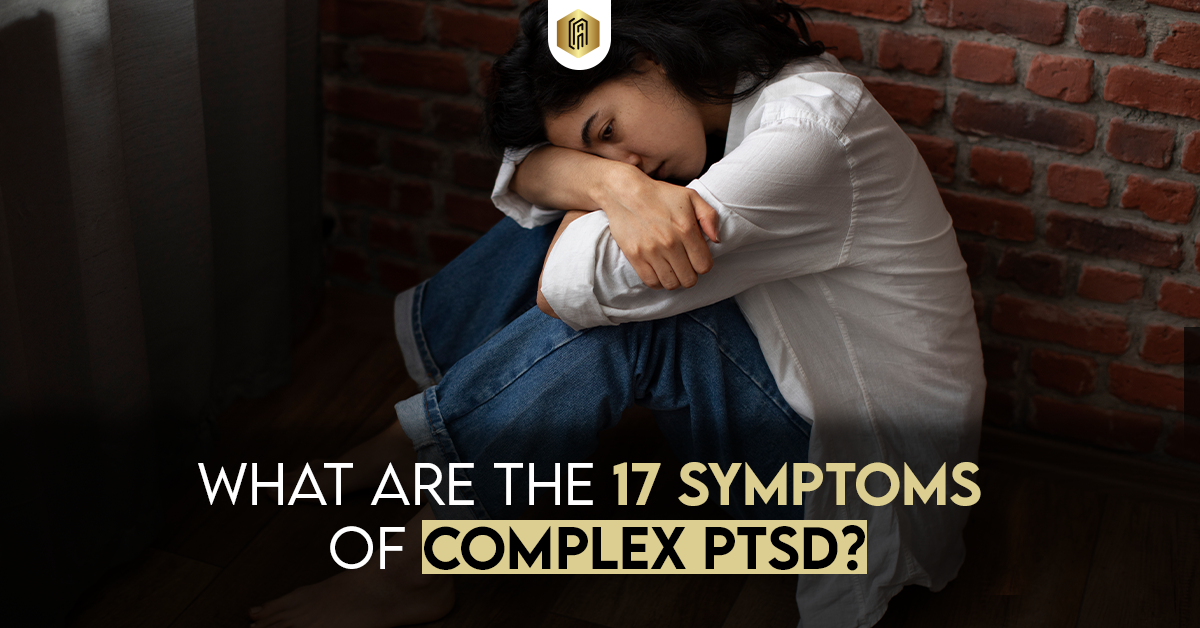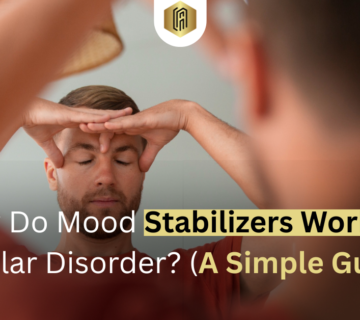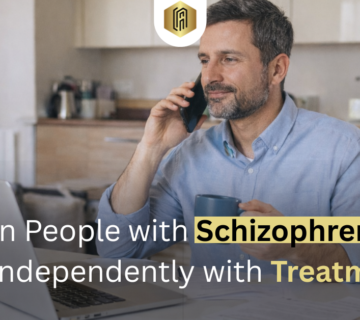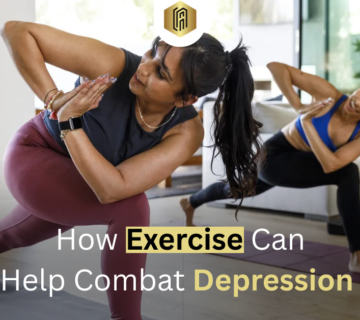Complex PTSD (CPTSD) emerges from a relentless storm of recurring trauma. Consider abuse, neglect, or bullying as examples of emotional warfare. Unlike PTSD (post-traumatic stress disorder), which erupts from a single trauma, CPTSD unfolds like a slow-burning flame. It develops gradually, fueled by ongoing pain and suffering. Let’s explore the “17 symptoms of complex PTSD.” We’ll see how they affect people and find ways to cope. Together, we can understand this complex issue and seek healing and resilience.
Dealing with the burden of Complex PTSD symptoms? Ascension Psychiatric Services provides caring support to help you heal and thrive. Contact us today.
What Are the 17 Symptoms of Complex PTSD
-
Intense Emotions
For those with CPTSD, emotions can be intense. Sadness can shift to anger or fear in an instant. These shifts often happen unexpectedly, leaving them confused. The reasons for these changes can be hard to identify.
-
Low Self-Esteem
CPTSD makes people feel bad about themselves. They might think they are worthless or unimportant, especially if their trauma came from being treated badly, like with CPTSD from bullying.
-
Trouble Trusting Others
When trauma happens repeatedly, it becomes hard to trust people. Those with CPTSD may find it scary to rely on anyone, even loved ones.
-
Constant Guilt and Shame
CPTSD can cast a shadow of self-blame over one’s heart. Some may feel shame, haunted by choices and experiences beyond their control.
-
Flashbacks and Nightmares
Many are trapped in flashbacks or vivid dreams of the past. Complex PTSD and nightmares turn peaceful nights into battles, stealing sleep’s calm. Each unwanted vision adds to the struggle, making rest hard to find.
-
Avoiding Triggers
To protect themselves, individuals may avoid things that remind them of their trauma. This could mean staying away from certain places or conversations.
-
Struggles in Relationships
CPTSD often makes it hard to form healthy relationships. Some people get stuck in bad relationships. Meanwhile, others might push loved ones away, leading to isolation.
-
Feeling Hopeless or Depressed
Feeling sad and hopeless for long periods is common. The weight of constant negative thoughts can make it hard for someone with CPTSD to enjoy life.
-
Physical Symptoms of Complex PTSD
CPTSD doesn’t just hurt emotionally; it can hurt physically too. Symptoms like stomachaches, headaches, body pain, or complex PTSD and tremors (shaking) can come from the stress caused by trauma.
-
Feeling Detached or Numb
CPTSD often causes people to feel disconnected from themselves and the world. This might feel like living in a dream or not feeling anything at all.
-
Always Being On Alert
Hypervigilance makes you feel that danger is always nearby. It leads you to believe that threats exist, even in safe places. This can also affect complex PTSD and sleep, making it difficult to relax.
-
Harmful Habits
During strong feelings, some people pick up bad habits. They may use drugs, overeat, or self-harm. Such actions may provide temporary relief. However, they often lead to deeper problems.
-
Poor Memory and Focus
It can be hard to think clearly or remember things when you have CPTSD. Even small tasks might feel overwhelming because of constant stress.
-
Fear of the World
CPTSD makes everything seem scary and unfair. People often believe that nothing gets better. They also struggle to trust anyone or anything.
-
Loss of Belief Systems
Sometimes, trauma can shake a person’s faith or core beliefs. Things that once gave comfort, like religion or a sense of purpose, might now feel empty or distant.
-
Extreme Sensitivity
Small actions, comments, or disagreements can be very hurtful. This extra sensitivity makes social situations tough to manage.
-
Struggling to Find Joy
One of the hardest symptoms is the inability to feel happy. People with CPTSD may lose interest in hobbies or feel empty, even during joyful events.
How to Manage and Cope
The 17 symptoms of complex PTSD can be tough. But there are ways to feel better and take control of life again.
Building Helpful Skills
Learning complex PTSD coping skills is important. Let’s explore some:
- Journaling: Pouring your heart onto the page unlocks emotional clarity and control.
- Mindfulness exercises: Deep breaths and meditation quiet the storm within a racing mind.
- Physical activity: Gentle movements like walking or yoga can melt away stress and lift your spirits.
Fixing Complex PTSD and Sleep Problems
CPTSD can cause nightmares and insomnia. But good bedtime habits can help. Here are some calming tips:
- Establish a regular sleep schedule.
- Avoid screens before bed. This helps your mind relax.
- Try relaxation techniques. Soothing music or guided imagery can bring you peace.
Talking to a Therapist
Unlocking healing for CPTSD often requires a professional touch. Consider these transformative therapies:
-
Cognitive Behavioral Therapy (CBT)
Cognitive Behavioral Therapy (CBT) fights against bad thoughts and actions. It helps shift your mindset toward healthier patterns.
-
Trauma Therapy
Trauma therapy aims to heal past emotional wounds. With compassion, it leads you to understanding and resolution.
-
Eye Movement Desensitization and Reprocessing (EMDR)
It’s a therapy for trauma. By gently bringing up difficult memories, it helps start the healing process.
Dealing with Triggers
Knowing what triggers feelings of fear or sadness can help someone take control. By understanding these triggers, people can plan how to respond in a way that feels safe.
Why Does CPTSD Happen?
CPTSD arises due to prolonged trauma that harms a person’s emotional health. It involves neglect, abusive relationships, and bullying that led to CPTSD. When this happens again and again over time, it becomes tough for a person to feel safe and secure.
Conclusion: What are the 17 Symptoms of Complex PTSD?
17 symptoms of complex PTSD impact daily life, but recovery is possible. Embracing coping skills for complex PTSD can be a game changer. Seek professional guidance, and you’ll find a beacon of hope. Build vibrant, healthy habits to rewrite your story. Step by step, healing will emerge; control will return.
Reach out to friends, family, or a professional if you or someone close has CPTSD. With support, you can heal and find a calmer, brighter life.
FAQs
What is Complex PTSD?
CPTSD is a mental health condition. It is caused by prolonged trauma, like abuse or neglect. It harms both emotions and body.
How does Complex PTSD affect sleep?
CPTSD can lead to sleep issues like insomnia, vivid nightmares, or constant alertness. These symptoms disrupt peaceful rest.






No comment